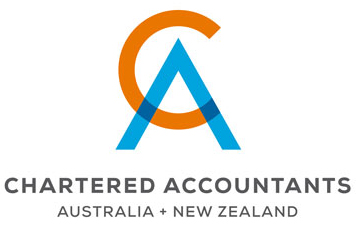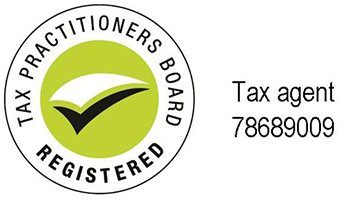Business Bulletin
In This Issue
Federal Budget round-up
Some business related Budget measures that may be of interest to businesses are outlined below.
Consolidation: calculation and collection of income tax liabilities
The Government will improve the operation of the rules relating to the calculation and collection of income tax liabilities from consolidated groups and multiple entry consolidated groups (MEC groups) by:
- clarifying that the Commissioner of Taxation can recover unpaid PAYG liabilities under the liability for payment rules, with effect from 11 May 2010;clarifying that the liability for payment of tax rules applies to MEC groups, with effect from 11 May 2010;
- clarifying that an entity that pays its contribution amount under a tax sharing agreement can leave a consolidated group or MEC group clear from any further liability, with effect from the 2004-05 income year;
- ensuring that, where there is a change in the provisional head company of a MEC group during an income year, any PAYG instalments paid by the former provisional head company on behalf of the group are attributed to the group, with effect from 1 July 2002; and
- clarifying that relevant parts of the income tax law apply to MEC groups in the same way as they apply to consolidated groups, with effect from 1 July 2002.
Changes to CGT to make it easier for businesses to restructure
The Government will introduce legislation to make amendments to the CGT provisions to improve the ability of businesses to restructure.
The Government will:
- extend the CGT rollover for the conversion of a body to an incorporated company;
- make the share sale facility exclusion more broadly available for CGT rollovers; and
- allow CGT demerger relief for certain demerger groups that currently cannot access the relief.
The three measures will apply to CGT events happening after 7.30 pm (AEST) on 11 May 2010.
In relation to the second amendment, the Government will allow Australian interest holders access to a broader range of CGT rollovers where an entity restructures using a share or interest sale facility for foreign interest holders. Currently, where a business restructures and it uses a share or interest sale facility for foreign interest holders, Australian resident interest holders are unable to access some CGT rollovers.
The share sale facility exclusion that currently operates in limited circumstances for Authorised Deposit-taking Institutions will be extended to operate more broadly for other entities and for other relevant CGT rollovers.
In relation to the third change, the Government will amend the CGT demerger relief provisions to allow another member of a demerger group to qualify as the head entity of the group where the existing head entity cannot demerge its interests in the demerger group. The measure will correct a defect in the current legislation that prevents demerger groups from accessing demerger relief where the group includes a corporation sole or a complying superannuation entity.
Look-through treatment for earnout arrangements
The Government will allow all payments under a qualifying earnout arrangement to be treated as relating to the underlying business asset. The measure will have effect from the date of Royal Assent of the enabling legislation, with transitional provisions available in certain cases from 17 October 2007.
Earnout arrangements are used to structure the sale of a business (or business assets) to manage uncertainty about the value of the business. Under the earnout arrangement, an earnout right may entitle the buyer or seller to additional payments depending on the subsequent performance of the business.
Currently, an earnout right is treated as a separate CGT asset – see draft Taxation Ruling TR 2007/D10. This treatment can result in anomalous outcomes for taxpayers where the actual payments under the earnout right differ from the amounts estimated at the start of the arrangement, such as by reducing access to the CGT small business concessions.
This measure will ensure that the CGT treatment of earnout arrangements does not create an impediment to the efficient market for the sale of businesses or business assets.
Further reductions in GST compliance costs for business
The Government will reduce compliance costs for businesses through a package of GST reform measures to help business owners spend less time wading through red tape.
These measures are designed to reduce the number of non-residents that need to be involved in the GST system and protect the GST base.
The key components of the plan are:
- restructuring the margin scheme provisions with effect from 1 July 2012. These are currently a way of working out the GST payable when property is sold as part of a business. This will clarify and simplify the rules and ensure greater certainty for taxpayers on issues surrounding the use of valuations;
- significantly increasing the threshold above which businesses need to interact with the financial supply provisions from $50,000 to $150,000 of input tax credits with effect from 1 July 2012;
- introducing measures to protect the GST base by reducing opportunities for businesses to inappropriately take advantage of the reduced input tax credit concessions by bundling services; and
- allowing small businesses accounting for GST on a cash basis to claim input tax credits upfront in relation to hire purchase arrangements. This change will significantly assist those businesses that have been forced into higher cost chattel mortgages following the introduction of the GST.
The reforms are the result of three reviews into specific aspects of the GST announced in the 2009-10 Budget following recommendations by the Board of Taxation’s Review of the Legal Framework for the Administration of the GST.
GST and cross-border transactions
The Government has announced that it will implement all the recommendations of the Board of Taxation from its Review of the application of GST to cross-border transactions, with effect from 1 July 2012.
The package will significantly reduce the number of non-residents who are unnecessarily drawn into Australia’s GST system by:
- limiting the connected with Australia provisions;expanding the compulsory reverse charge provision;
- extending the GST-free rules for cross-border supplies; and
- removing the need for some non-residents to register.
GST and cross-border transport supplies
The Government will make a number of minor revisions to its 2009-10 Budget measure that reduces GST compliance costs for businesses involved in the domestic transport of exported and imported goods, to ensure that the place of consignment will always be determined by the place of delivery in the principal contract. This measure will have an ongoing negligible revenue impact and an ongoing negligible impact on GST payments to the States and Territories.
The measure will also ensure that ancillary services to the international transport of goods receive the same GST treatment as the transport supply that they facilitate.
Henry Report
Henry Report – highlights
The following are the highlights of the Government’s response.
- A Resource Super Profits Tax will be introduced on 1 July 2012 at a rate of 40% on profits made from the exploitation of Australia’s non-renewable resources;
- The States and Territories will be provided with new, ongoing infrastructure funding, with an initial total amount of $700m in 2012/13;
- A refundable resource exploration rebate will be provided to companies, set at the prevailing company tax rate, for exploration expenditure carried out in Australia from 2011/12;
- The company tax rate will be reduced to 29% from 2013/14, and to 28% from 2014/15;
- The company tax rate for "eligible small business companies" will be reduced to 28% from 2012/13;
- The immediate write-off for assets of small businesses will be extended to assets valued at less than $5,000 from 1 July 2012;
- The superannuation guarantee charge (SGC) will be increased by annual increments until it reaches the plateau level of 12% by 2019/20;
- The entitlement to the SGC will be broadened by lifting the maximum age threshold from 70 to 75 years of age;
- The concessional contributions cap will be raised to $50,000 per year for workers who are 50 and over and who have superannuation balances of under $500,000; and
- A new Government superannuation contribution will be created which will pay up to $500 for workers with adjusted taxable incomes of up to $37,000.
Reduced company tax rate from 2013/14
The Government has announced that the company tax rate will be reduced to 29% from 2013/14, and to 28% from 2014/15.
It was recommended in the Henry Report that the company tax rate be reduced to 25% over the short to medium term, with the timing subject to economic and fiscal circumstances (Rec 27).
Small business companies: lower tax rate
The company tax rate for "eligible small business companies" will be reduced to 28% from 2012/13 (ie two years earlier than for other companies).
Small business write-off changes
The capital allowances provisions will be changed in order to allow small businesses:
- to write off immediately assets valued at under $5,000 (compared with the current $1,000 limit); and
- to write off other assets (ie assets valued at over $5,000) in one depreciating pool at the rate of 30%.
Currently, depreciating assets may be allocated to 2 different depreciating pools. This will not apply to buildings.
The revised rules will apply from 1 July 2012.
RSPT
A Resource Super Profits Tax (RSPT) will be introduced on 1 July 2012 at a rate of 40% on profits made from the exploitation of Australia’s non-renewable resources.
The RSPT will replace the crude oil excise, and operate in parallel with State and Territory royalty regimes. Projects within the scope of the Petroleum Resource Rent Tax (PRRT) will have the option of opting into the RSPT or staying in the PRRT. The election into the RSPT will be irrevocable.
Under the RSPT a refundable credit for royalties paid to State and Territory Governments will be available. The refundable credit will eliminate investment distortions associated with the state royalty systems and ensure there is no ‘double taxation’ of resource profits.
Under the RSPT the Government will guarantee to contribute 40% of the investment cost of a resource project.
The Government will consult extensively with stakeholders on the design of the RSPT. The consultation will also cover the need for exemptions from the RSPT where, due to compliance costs, there is no net benefit to society in applying the RSPT. This may occur in respect of low value minerals or micro businesses.
Future reforms indicated
The Government has promised that in the coming months it will have more to say on a number of areas considered by the review.
The business related recommendation by the Government has said it will consider from the Henry Review include:
- the collection of information required for determining tax liabilities and transfer entitlements from third parties, including employers, Government agencies, financial institutions, and share and property registries (Rec 125);
- the development of a single client account for tax and transfer financial information, for example by linking records and existing client identifiers (Rec 130);
- pursuing further approaches (extending and building on Standard Business Reporting) to reduce the compliance costs associated with business interactions with Government (Rec 126); and
- Small businesses should be assisted in becoming business ready when they commence business (Rec 127).
Disclaimer
Taxwise® News is distributed quarterly by professional tax practitioners to provide information of general interest to their clients. The content of this newsletter does not constitute specific advice. Readers are encouraged to consult their tax adviser for advice on specific matters.

